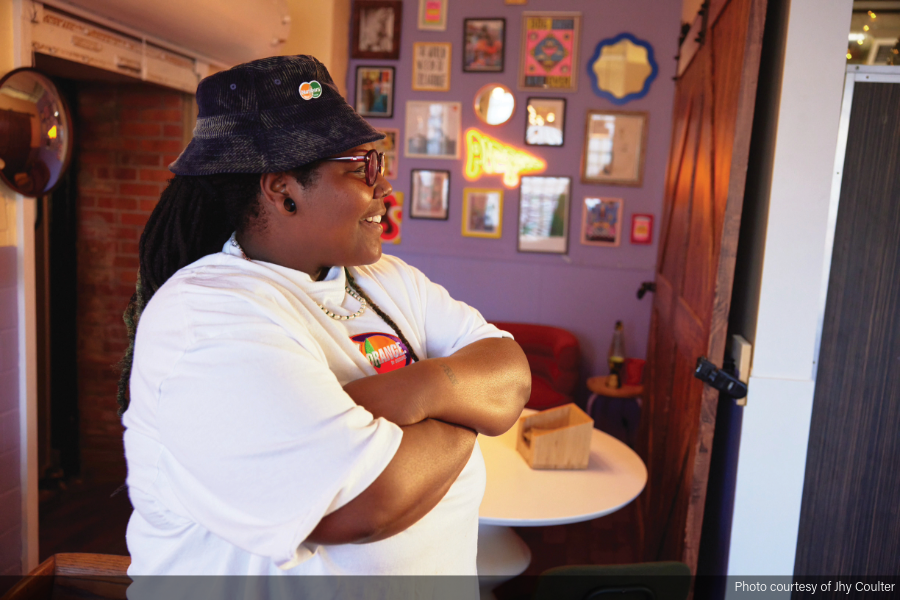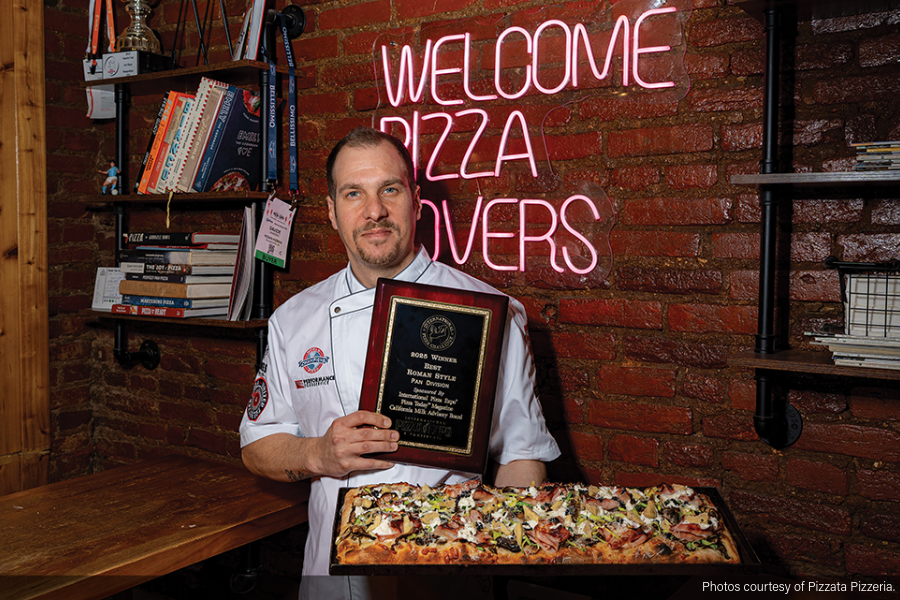
Show of hands: who enjoys doing payroll?
Indeed, many pizzeria operators far prefer mingling with guests or making pies to the tedious back-office task. Yet, employees must be paid and payroll remains a necessary duty to please employees, the government, and the bottom line –– whether it’s tackled in house or outsourced to a payroll company.
At Yolanda’s Italian Restaurant and Pizzeria, a 50-year-old eatery in the Bronx, New York, owner Neil Calisi handles payroll himself. With eight employeescoveringhis80-seatpizzeria, he says payroll has never become so troubling and time consuming that he’s contemplated outsourcing the task.
“We’re an old-school business, so we’re going to keep payroll in house rather than going outside for something so small,” says Calisi, a second- generation operator prepping the family business for a third generation.
According to Calisi, keeping payroll in house demands two essential ingredients: a credible accountant and bookkeeping software. Calisi, for instance, uses Intuit QuickBooks, which allows staff to clock in and out and records their working hours.
“QuickBooks does the math for me,” Calisi says, adding that he also uses the software for billing and inventory control.
‘ From changing state unemployment rates to federal and local taxes, there’s so much that small businesses need to know and account for that it becomes difficult to keep an eye on every detail’.
– Kathey Palmer, CompuPay
But first, Calisi’s accountant came to Yolanda’s and –– in a critical opening step — set up the software to provide accurate pay and current tax information. While Calisi acknowledges an early learning curve in moving from Yolanda’s pen-and-paper ways to the computer, he says the system is now self-sufficient. “Without a big staff, it’s not cumber- some for me to do the payroll,” he says.
“With the software and accountant, there isn’t much more you need to do.”
As a restaurant’s employee pool deepens or additional locations are added, however, many operations elect to outsource payroll. After years of doing his own payroll, Alex Akhmedov grew tired of the unwieldy process, specifically as workers came and went and Akhmedov opened new units of Sal’s Pizza & Restaurant, his full-service eatery that now claims three locations in central Tennessee.
Employing CompuPay, one of the payroll industry’s major players alongside the likes of ADP and Intuit, Akhmedov holds confidence that his staff members are receiving accurate pay on time and that taxes and payroll regulations are being followed accordingly.
“They know what they’re doing and are skilled and professional,” Akhmedov says of the outsourcing companies. “I want consistency and accuracy and they provide that.”
CompuPay senior vice president of business development Kathey Palmer says many restaurant operators like Akhmedov outsource payroll because “it is a relatively inexpensive business solution that can give business owners peace of mind.” She adds that many others turn to a payroll service only after a painstaking pay issue, such as a tax penalty, arises.
“Outsourcing payroll is much like an insurance policy,” Palmer says. “Operators learn that it’s far less expensive to get it right the first time.”
As the payroll process becomes increasingly complex given various tax and regulatory issues, operators appear more eager than ever to hand the critical business function over to a specialist who knows the ins and outs of the employee pay environment.
“From changing state unemployment rates to federal and local taxes, there’s so much that small businesses need to know and account for that it becomes difficult to keep an eye on every detail,” Palmer says, noting the unforgiving nature of wage and hour laws.
Payroll service provider ADP has long embraced the saying “You Make Pizza, We Do Payroll,” a nod to the idea that pizzeria operators should do what they know best and outsource the tasks that fall outside of their skill set.
From calculating payroll checks and tax payments to printing W2 forms and incorporating new payroll and tax regulations, a payroll service can address many of payroll’s financial and legal matters.
“Operators are not experts in payroll,” Palmer says. “We are.”
Though prices vary widely by market and provider, payroll providers generally charge a per check fee –– often in the $1 to $2 window –– based on the number of employees and check frequency. Thereafter, some providers bundle additional services –– direct deposit, tax filing, check signing and sealing, quarterly and annual tax reports –– while others adopt the a la carte model in which operators select the services most applicable to their establishment.
While some operators seek traditional full-service payroll, which can be as simple as making a call and communicating staff hours to an assigned payroll specialist, many more have embraced online functionalities, which allow an operator to process payroll in a few mouse clicks.
Much like those operators who keep payroll in house, starting from a credible, solid foundation is imperative. At least one company we interviewed, for instance, works with operators to define wages and tax info before setting up a system that matches their needs.
“Within 15 to 20 minutes, we can typically help operators understand how the system works and walk them through their initial payroll run,” Palmer says.
Akhmedov says outsourcing the payroll function keeps his staff happy with accurate, timely paychecks, but also affords him increased freedom to manage staff, touch customers, and market his restaurants. He says: “Keeping the employees happy and compensated certainly makes my job easier and allows me to focus on other responsibilities.” u
Chicago-based writer Daniel P. Smith has covered business issues and best practices for a variety of trade publications, newspapers, and magazines.
PICKING THE RIGHT PAYROLL PARTNER
Following some unfortunate bumps with his first payroll outsourcing service, Alex Akhmedov of Sal’s Pizza
& Restaurant has moved onto a new provider. He urges his fellow pizzeria operators to fully vet any payroll service, looking for clues into their accuracy and customer service.
Operators, Akhmedov says, should inquire about the provider’s support model — “Who will handle my account?” — as well as how the provider will handle tax notices and rate changes.
Operators should also interview various payroll companies, inquiring about the base services and add-on options, and review the company’s history, including its business history and rating with the Better Business Bureau.
In addition, operators would be wise to consult with other businesses of a similar size. From those conversations, operators can better discern a company’s responsiveness and quality. Some payroll services, for instance,
may have a penchant for hidden fees or prove elusive at the first sign
of trouble.






